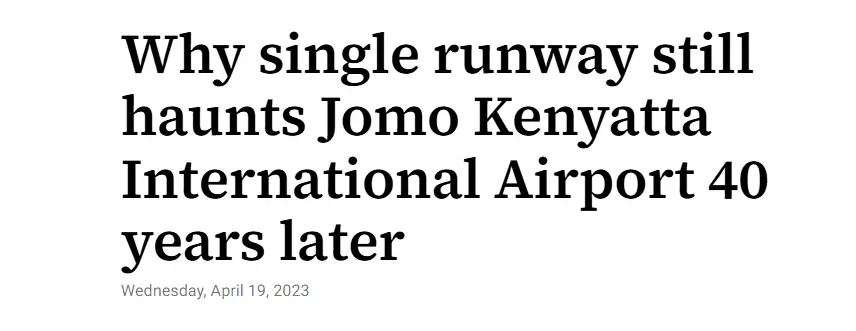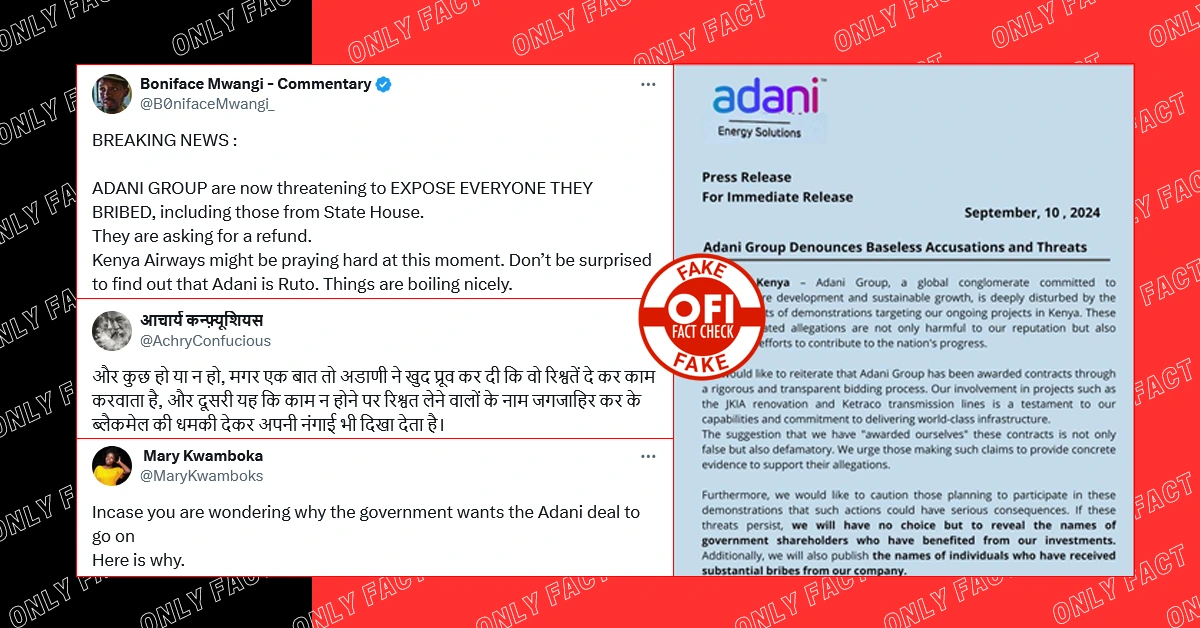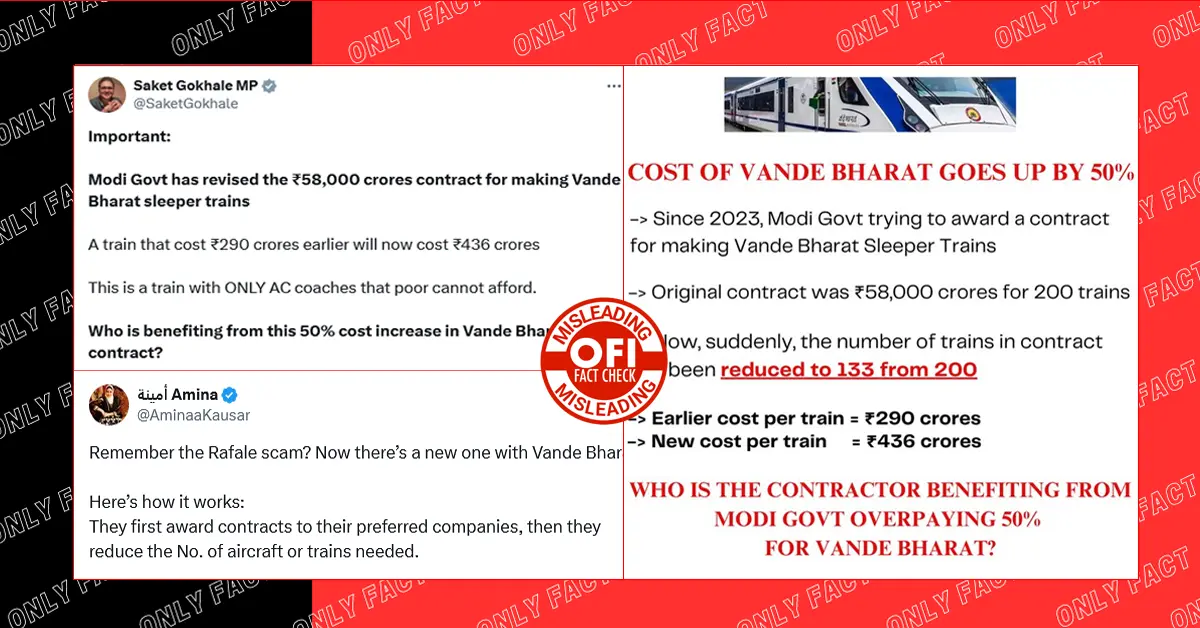The controversy surrounding the Adani Group’s alleged takeover of operations at Jomo Kenyatta International Airport (JKIA) continues to intensify. In a new development, a press release, purportedly from Adani Energy Solutions, has gone viral on social media. The letter warns Kenyan government officials who awarded the contract to the Adani Group, as well as shareholders who benefited from the deal. It also threatens to expose individuals who allegedly received substantial bribes from the Adani Group, warning of potential repercussions if the ongoing protests against the Adani Group and the Kenyan airport authorities are not quelled.
Kantai Sayei shared the letter and wrote, ‘I hope this is a fake one, but just para adventure that it is genuine, then Kenyans must like the way this is turning.’
I hope this is a fake one, but just para adventure that it is genuine, then Kenyans must like the way this is turning @Adani_Elec_Mum @AdaniOnline @amenya_nelson @KenyaAirports @RichardOnyonka_ pic.twitter.com/msBPLH60bn
— Kantai Sayei (@kantaisaei) September 11, 2024
Sanjay Hegde claimed, ‘Which idiot in @AdaniOnline public relations drafted this press release? Do you realise that you have just admitted to paying bribes. This release might haunt you in criminal cases hereafter. NEVER PLEAD GUILTY as Rumpole would have said.’
Acharya Confucius asserted, ‘Whatever may be the case or not, but one thing Adani himself has proved is that he gets the work done by giving bribes and secondly, if the work is not done, he exposes his nakedness by threatening to blackmail the bribe takers by revealing their names. Perfect Gujju businessman, just like your servant.’
और कुछ हो या न हो, मगर एक बात तो अडाणी ने खुद प्रूव कर दी कि वो रिश्वतें दे कर काम करवाता है, और दूसरी यह कि काम न होने पर रिश्वत लेने वालों के नाम जगजाहिर कर के ब्लैकमेल की धमकी देकर अपनी नंगाई भी दिखा देता है।
— आचार्य कन्फ़्यूशियस (@AchryConfucious) September 15, 2024
परफेक्ट गुज्जू धंधेबाज, बिल्कुल अपने नौकर जैसा।
🤦♂️😂😂😂 pic.twitter.com/0fSGYOt52g
Baba MaChuvera wrote, ‘Adani admitted that they have given bribes to Kenyan officials for gaining the projects. In India he doesn’t bribe, agencies work for him !!’
अदानी ने खुद ही खुलासा कर दिया के वो प्रोजेक्ट लेने के लिए लोगो को रिश्वत देते है 🤨
— Baba MaChuvera 💫 Parody of Parody (@indian_armada) September 16, 2024
Adani admitted that they have given bribes to Kenyan officials for gaining the projects.
In India he doesn't bribe, agencies work for him !!! 🌝 pic.twitter.com/ZV9gl8XQxa
Rohit Agrawal stated, ‘Is this real or fake? Adani admit thay they bribe to official in kenya to get the contract. Are they following similer practise in india as they are only one who are getting big projects?’
Is this real or fake?
— Rohit Aggarwal (@Rohit10736496) September 16, 2024
Adani admit thay they bribe to official in kenya to get the contract.
Are they following similer practise in india as they are only one who are getting bjg projects?https://t.co/ayQFCpep5v pic.twitter.com/XkAnfXCasT
In addition to this, other X account users such as Wycliffe Onkundi, Boniface, Ekuru Aukot, Dictator Watch, Mary Kwamboka, and Rkhuria, Boniface Mwangi, have also shared the letter with a similar claim.
Fact Check
We began our fact-checking process by closely analyzing the viral press release. The first thing we noticed was a difference between the Adani Group logo used in the press release and the official logo from the Adani Group’s website. Now, let’s compare the logo on the alleged press release with the one from the Adani Group’s official website. The two logos differ in the following ways:
1. Font Style: – In the viral press release , the letters appear slightly bolder and more closely spaced compared to the second image.
– The website logo has thinner and more evenly spaced letters, giving it a lighter appearance.
2. Design Detail: – The press release logo includes a line underneath the text, possibly separating the name from a tagline or additional text below.
The website logo is simpler, with just the word “adani” and no additional elements like a line or tagline beneath it.

In summary, the first logo is more complex with bolder text and extra design elements, while the second logo is minimalistic with lighter text.
Next, we reviewed the official press releases from the Adani Group. We found that the language, tone, and overall unprofessional approach in the viral press release were vastly different. The press releases on the Adani Group’s website are professional and well-written, whereas the viral press release comes across as inappropriate and offensive.
The viral press release letter has a different of tone, language and structure than the official statement from the Adani Group.
1. Tone: The viral press release is very aggressive and threatening, saying it will “expose people who took bribes.” Companies rarely use such harsh language in public statements. They usually stay professional and careful with their words.
2. Language: The viral press release uses words like “baseless accusations” and “we will have no choice but to reveal names,” which is unusual for official company communication. Big companies tend to avoid making public threats and would rather handle such matters privately.
3. Structure: The viral press release is informal in certain parts, almost as if it’s trying to scare people, which is not typical of official press releases from global corporations like Adani Group.
In short, the viral press release’s overly aggressive tone, threatening language, and informal style make it seem unprofessional, prompting the suspicion that it’s not real.
Furthermore, the most critical point to consider is that no such press release, as seen in the viral social media posts, exists on the Adani Energy website, clearly proving it to be fake. The most recent press release from Adani Energy was published on September 2.
In addition to the font and language inconsistencies, it’s important to note that the viral press release features the letterhead of Adani Energy. However, Adani Energy and Adani Airports are completely separate entities, each specializing in different sectors. This raises the question of why Adani Energy would issue a press release about Adani Airports. This inconsistency strongly suggests that the viral press release is fake.
Additionally, we found an official media statement from the Adani Group, denouncing the viral press release as fraudulent. The official media release said, “Certain vested interests with malicious intent are circulating multiple fraudulent press releases, including one titled “Adani Group Denounces Baseless Accusations and Threats,” related to our presence in Kenya.
We categorically state that neither the Adani Group nor any of its companies or subsidiaries have issued any press releases related to Kenya.
We strongly condemn this deceitful act and urge everyone to disregard these fake, fraudulent releases completely. We will take legal action against anyone involved in spreading false narratives.
Know more: https://t.co/P8Ybq6c8YI pic.twitter.com/aIcBvh6CSf
— Adani Group (@AdaniOnline) September 16, 2024
Our official press releases are available on our websites.
We encourage the media and influencers to verify facts and sources before publishing or broadcasting any articles or news on the Adani Group.”
Now that we have affirmed that the viral press release is undoubtedly fake. We need to make sure that the readers here realese the why the jewel of Africa need to overhaul their capital city airport and why kenya desperately need new aiport.
Kenya’s airport issues seem never-ending, with daily problems like fires, debt crises, power outages, and outdated infrastructure. It feels like something is holding back Kenya’s progress. Let’s dive into the main challenges Jomo Kenyatta International Airport (JKIA) is facing and how they are affecting the country’s growth.
Why Kenya’s Airport Needs Upgrading
Kenya’s airport infrastructure, especially at JKIA, is struggling. Although it’s one of the busiest airports in the region, it doesn’t meet modern international standards and has been dealing with serious issues for years.
Key Problems at JKIA
1. Single Runway: For over 40 years, JKIA has been operating with just one runway. This limits the number of flights the airport can manage. Unlike nearby countries like Tanzania and Uganda, which have improved their airport facilities, Kenya has lagged behind, affecting its air traffic and regional competitiveness.

2. Airport Fire and Poor Emergency Response: In 2013, a fire at JKIA caused significant losses for Kenya Airways, with damages amounting to millions of dollars. The incident revealed the airport’s lack of preparedness and inadequate emergency response systems.

3. Growing Debt and Strained Resources: Kenya Airways owes the Kenya Airports Authority (KAA) Sh6.3 billion. This mounting debt, coupled with operational inefficiencies, has made it increasingly difficult for the airport to expand or modernize its infrastructure.

4. Frequent Power Outages: Recently, a major power outage at JKIA led to delays, disrupting both travelers and airport operations. Such incidents are not only embarrassing for a country of Kenya’s economic standing but also highlight the urgent need for infrastructure investment.

Why Kenya Needs a New Airport
With all these issues piling up, it is evident that JKIA’s current state cannot support Kenya’s long-term ambitions as a regional transport hub. Kenya’s economic growth depends heavily on having a modern, efficient airport capable of handling increasing passenger and cargo traffic. Countries like Tanzania and Uganda, despite having smaller economies, have already made significant investments in their airport infrastructure. Meanwhile, Kenya, despite being an economic leader, still struggles with outdated facilities. This gap between economic strength and infrastructure is a major obstacle to the country’s continued growth.
The Benefits of a New Airport
- Increased Capacity: A new airport or major upgrades to JKIA would give Kenya the ability to handle more flights, boosting connectivity with the rest of the world. This would, in turn, enhance tourism, trade, and investment.
2. Job Creation: Building a new airport would create thousands of jobs, both during construction and in the long term, benefiting industries like retail, hospitality, and logistics.
3. Improved Efficiency: Modern airport infrastructure would reduce delays, improve the passenger experience, and streamline cargo operations, positioning Kenya as a key logistics hub in the region.
4. Attracting Foreign Investment: A state-of-the-art airport would make Kenya a more attractive destination for foreign investors, which would boost the economy and create even more employment opportunities.
5. Enhancing Kenya’s Global Image: With better infrastructure, Kenya could present itself as a modern, forward-thinking nation, ready to compete globally. This would increase international confidence and encourage stronger partnerships.
In conclusion, the viral press release threatening to expose Kenyan government officials for accepting bribes from the Adani Group is fake. It was created with the intent to further escalate tensions and sow discord between the Indian business conglomerate, Adani Group, and the Kenyan government.
| Claim | The Adani Group allegedly threatened to expose Kenyan government officials for accepting bribes if protests against the company were not quelled. |
| Claimed by | Several media users |
| Fact Check | The letter circulating online is fake. The Adani Group has officially denounced the letter as fraudulent. |








